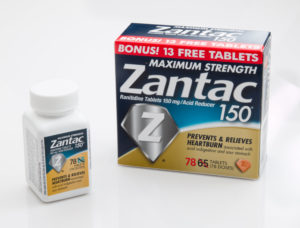To screen or not to screen—Cognition assessments under fire
The case for cognition screening for symptom-free older adults came to a boil again following a report questioning the efficacy of screening tools. The report, released by the U.S. Preventive Services Task Force (USPSTF) and published online last week in the Annals of Internal Medicine, concluded that no clear value case exists for the benefits of screening older adults who have no signs of impairment and, in some cases, screening results may lead to more harm than good.
The task force found "inadequate" evidence to support the benefits of no-cause screening and evaluated whether the screening process delivered enough benefits to outweigh possible issues with early drug therapies.
"Evidence shows that several drug therapies and nonpharmacologic interventions have a small effect of cognitive function measures in the short term for patients with mild to moderate dementia, but the magnitude of the clinically relevant benefit is uncertain," the report concluded. In addition, the report warned of problematic situations that can arise when drug treatments are enacted because a screening test was positive: Many of the drugs approved for dementia have dangerous possible side-effects, including liver damage, slow heart rate and falls attributed to fainting.
The recent report echoed the statements in the USPSTF’s 2003 report on cognition screening, a disappointment for organizations that have developed new tools for cognition testing, early interventions and brain stimulation exercises in the 10 years between reports.
The Alzheimer’s Foundation of America (AFA) voiced its frustration at the report’s findings, saying that the report seems to dismiss the new advancements in screening and devalues the role of a positive screening result to “raise a red flag” for older adults who may not have shown prior symptoms of cognitive decline.
"Early detection of Alzheimer's disease can empower individuals and their families to take a more proactive approach to care planning and treatment and thus help improve quality of life,” said AFA CEO Charles J. Fuschillo Jr. in a foundation statement. “Individuals can take advantage of available treatments when they are most helpful, before symptoms have progressed. There is a substantial benefit to identifying a 65 year old with mild cognitive impairment who is currently in a stage in which FDA-approved medications can slow progression of symptoms and postpone costly nursing home placement."
Some also fear that the report’s findings could be misinterpreted, causing all dementia screening tools to be devalued and possibly discouraging people from participating in clinical trials. "Identification of those with pre-symptomatic dementia is critical for participation in clinical trials as research into promising drug therapies is taking place earlier in the disease progression," Fuschillio added.
The report is also seemingly at odds with the Center for Medicare & Medicaid Services’ Annual Wellness Visit initiative. The program, instituted in 2011, provides those with Medicare Part B benefits for longer than one year an annual, deductible-free visit to review personal health risk factors, including the "detection of any cognitive impairment."
8 effective screening toolsThe USPSTF report examined various screening tools and deemed the following eight tests as effective for detecting mild cognitive impairments:
Source: USPSTF report, March 2014 |
The USPSTF report serves as a recommendation and does not mandate the use or disuse of screening tools. The report also ientifies eight screening tools deemed to be effective [see sidebar].
But the report has re-opened the discussions on cognitive screening, including the need for physicians, residents and families to discuss the efficacy of screening tools, increase education on what the test results mean and discuss any drug treatments carefully.
The American Geriatrics Society included the topic in its February "Choosing Wisely" List, noting that certain drug trials and treatments for dementia should be discussed at length: "Clinicians, caregivers and patients should discuss cognitive, functional and behavioral goals of treatment prior to beginning a trial of cholinesterase inhibitors. Advance care planning, patient and caregiver education about dementia, diet and exercise, and non-pharmacologic approaches to behavioral issues are integral to the care of patients with dementia, and should be included in the treatment plan in addition to any consideration of a trial of cholinesterase inhibitors."

Pamela Tabar was editor-in-chief of I Advance Senior Care from 2013-2018. She has worked as a writer and editor for healthcare business media since 1998, including as News Editor of Healthcare Informatics. She has a master’s degree in journalism from Kent State University and a master’s degree in English from the University of York, England.
Related Articles
Topics: Alzheimer's/Dementia , Articles , Clinical , Executive Leadership











